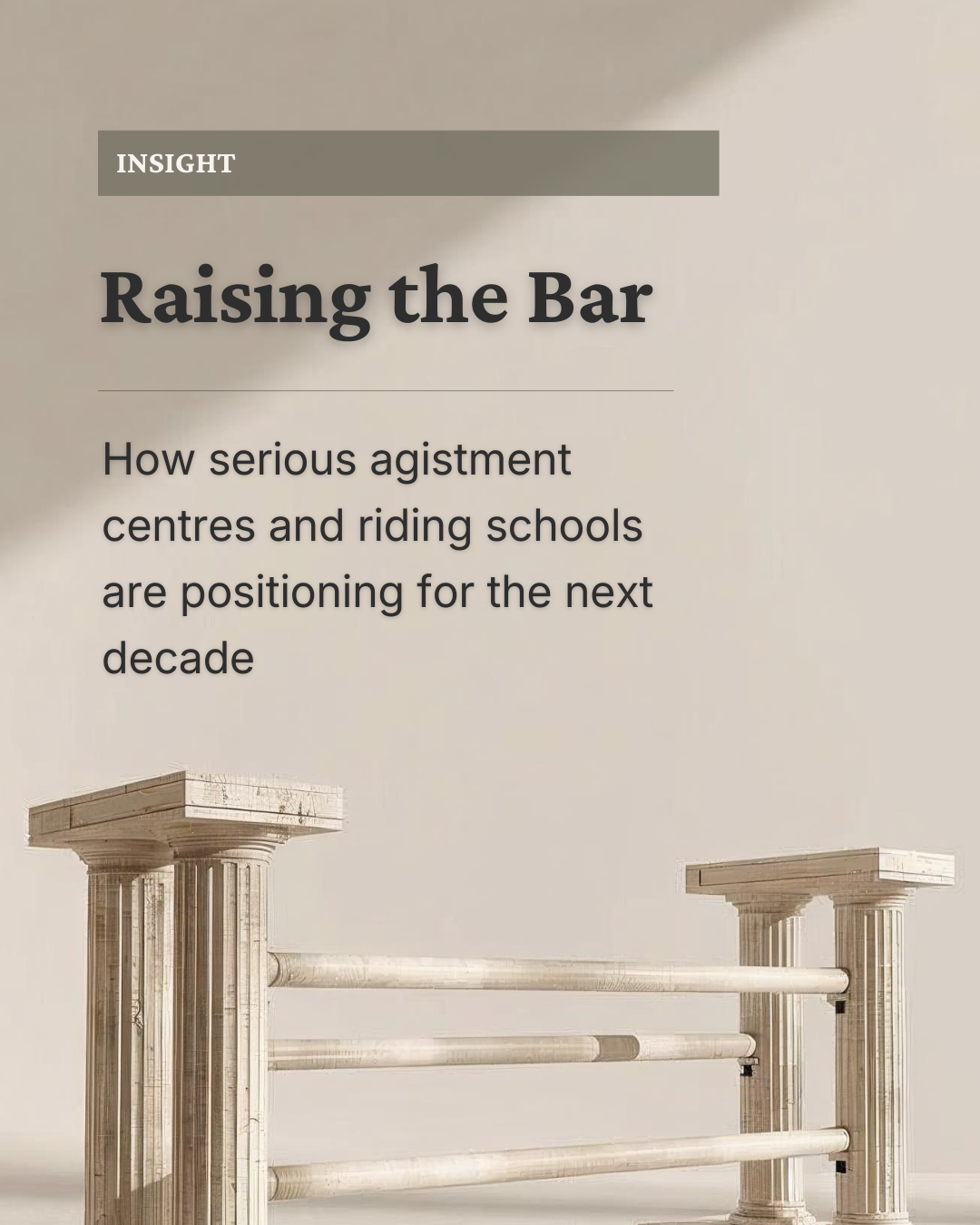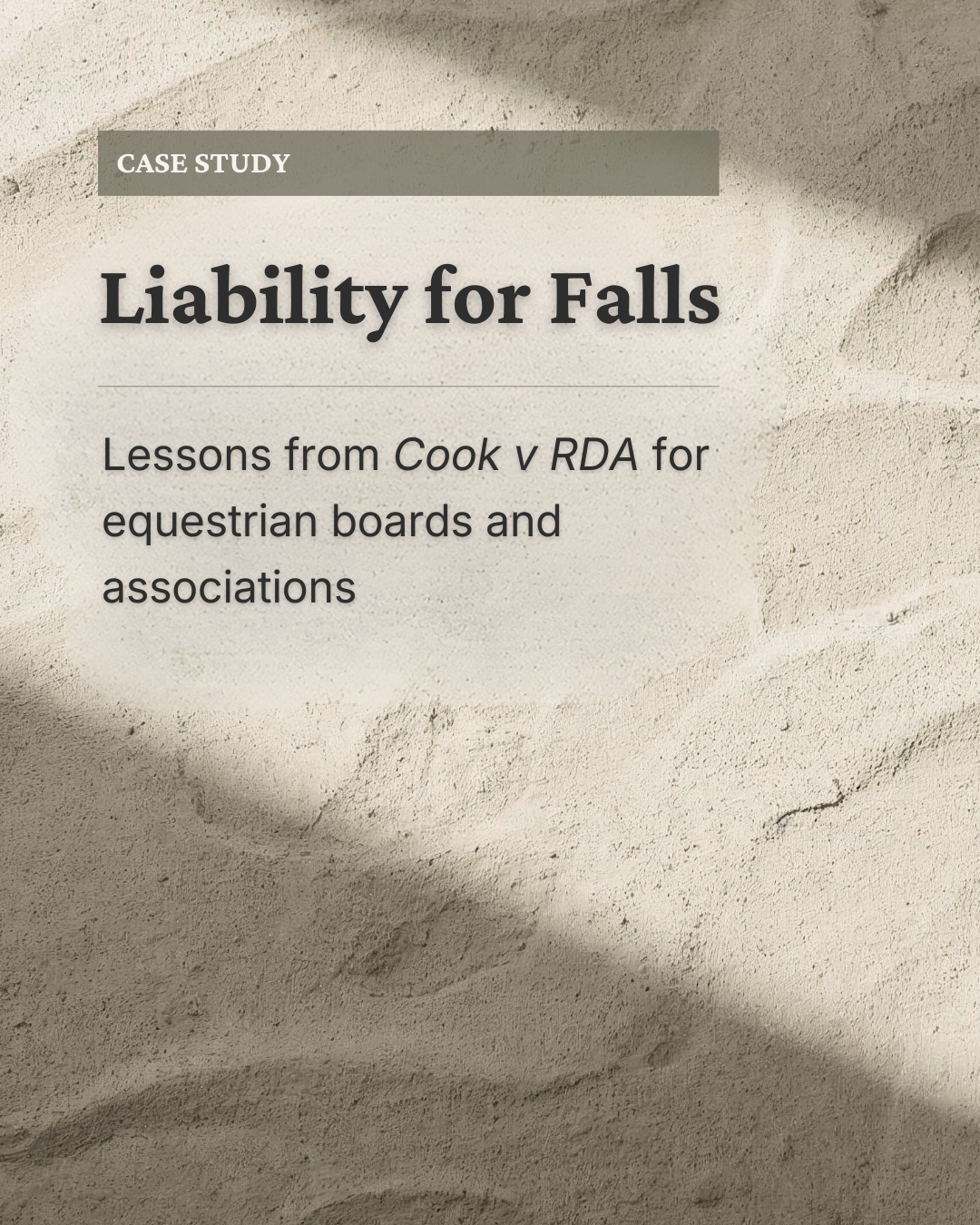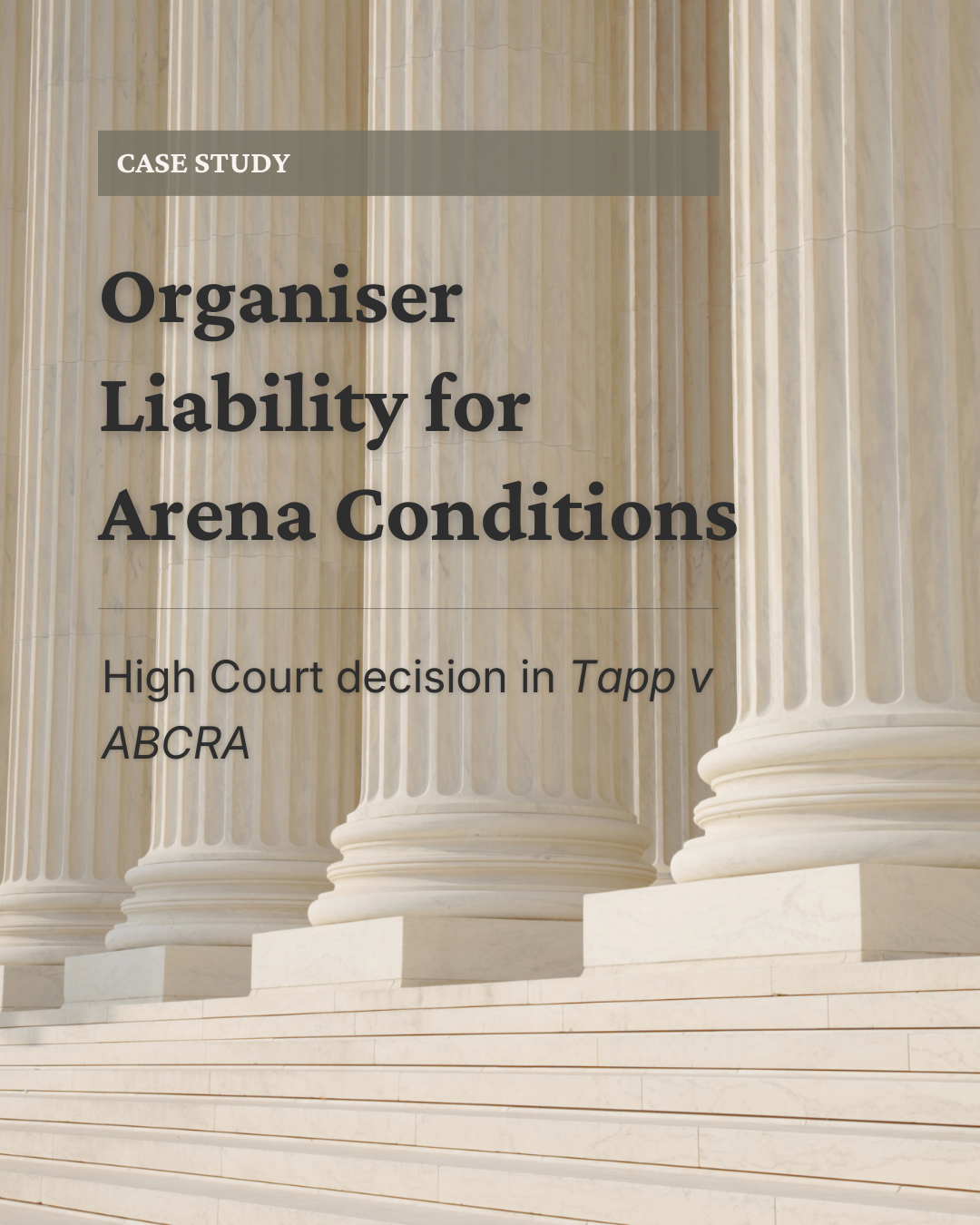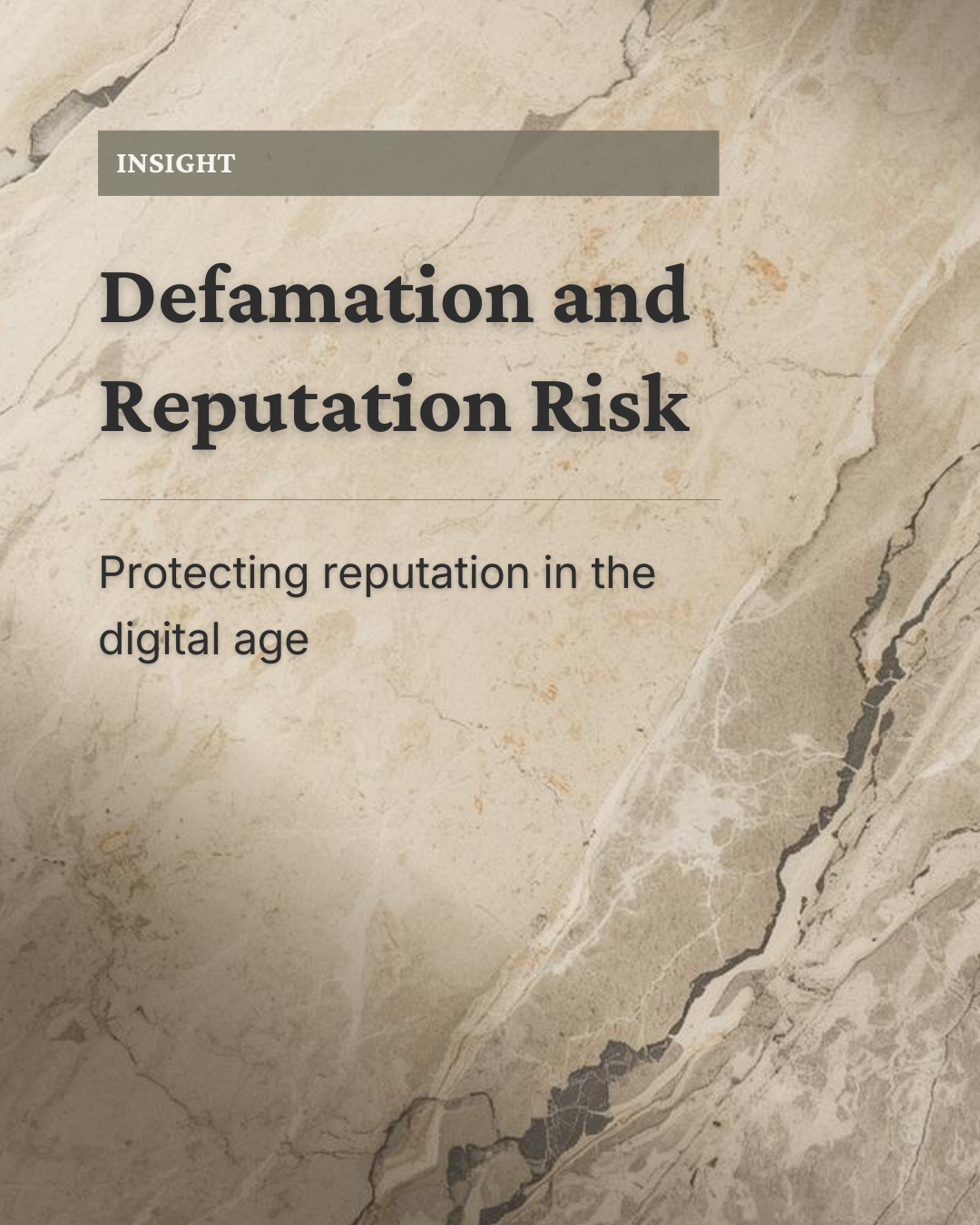

Raising the Bar - How serious agistment centres and riding schools are positioning for the next decade
A quiet separation is emerging across agistment centres and riding schools between operations still run as lifestyle extensions and those being repositioned as long-term commercial enterprises. As insurance markets tighten, workforce expectations rise and external scrutiny increases, informal practices are becoming a source of risk rather than resilience. Serious operators are responding by professionalising how their businesses are structured, governed and evidenced, with insurability, documentation and clear operational boundaries now shaping day-to-day decisions. The piece explores why this shift is becoming decisive for credibility, safety and long-term viability, and how thinking beyond personal tolerance for risk is redefining what it means to run a sustainable equine operation over the next decade.

Liability for Falls - Lessons from Cook v RDA for equestrian boards and associations
Equestrian and sporting associations play a vital role in community life. Board members of state and national bodies accept considerable responsibility with their position, including accountability for how risk is managed across programs, clubs and events. They must ensure that governance frameworks, safety policies and operational systems are not only in place, but actively working to protect participants and the organisation. In high-risk activities like horse riding, where injuries can have life-changing consequences, this duty becomes even more critical. The Supreme Court’s decision in Cook v Riding for the Disabled Association (NSW) offers lessons for board members and executive leaders on how risk management systems must be designed, implemented and enforced.

The Artificial Intelligence Era – How AI is transforming the equine sector
Businesses and innovators across the equine sector are embracing rapid technological change. From horse training and performance to breeding and veterinary care, artificial intelligence (AI) is transforming how horses are bred, trained and managed.
Business leaders that can adapt early have the opportunity to make faster, more informed decisions and connect with customers in new ways. But this isn’t a simple “tech upgrade”. AI raises complex questions about data ownership, IP rights and liability when something goes wrong.

When Arena Conditions Turn Dangerous - High Court rules on organiser liability in Tapp v ABCRA
The High Court’s decision in Tapp v Australian Bushmen’s Campdraft & Rodeo Association Ltd is a landmark reminder for event organisers in equine sport. Emily Tapp, an experienced rider, was left paralysed after her horse slipped on a deteriorated arena surface. Despite multiple falls and competitor warnings, organisers continued the event without inspection. The Court held this was a breach of duty, rejecting the defence of “obvious risk” and awarding $6.75 million in damages. The case underscores the obligation to act promptly when safety concerns arise - particularly with arena surfaces - and the limits of relying on assumption-of-risk defences.

Defamation in the Horse Industry - Protecting reputation in the digital age
False allegations, negative online reviews and public disputes can cause lasting damage to a professional reputation - and the horse industry is not immune. Defamation occurs when someone publishes material that harms another’s reputation, whether online or in conversation, and may apply even if the person is not named but can be identified. The case of Aurisch v Wilson shows the significant damages that can be awarded for defamatory Facebook reviews. With strict time limits for claims and complex defences, it’s critical to act quickly if you are affected. Seek legal advice before posting - or responding - to avoid costly consequences.

